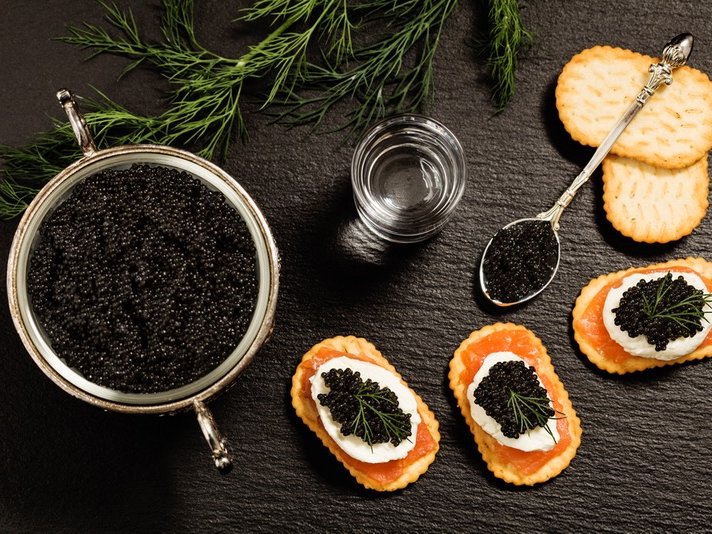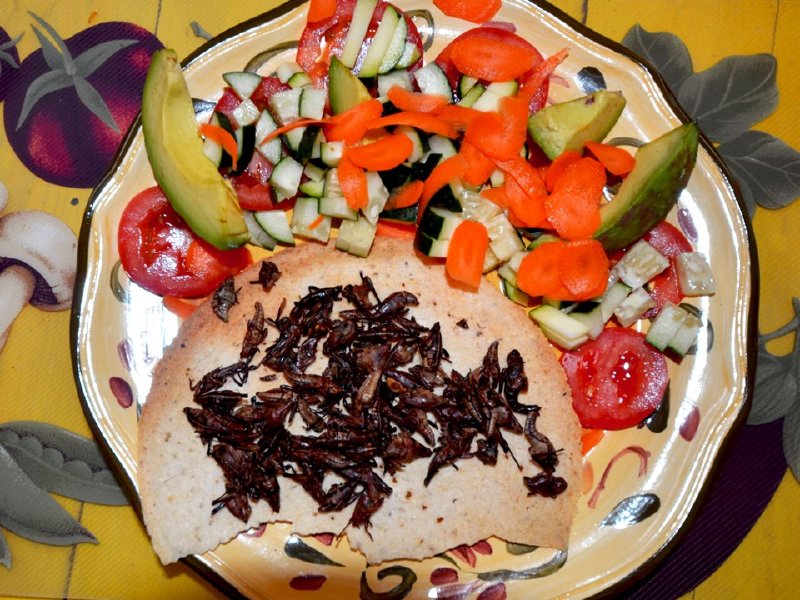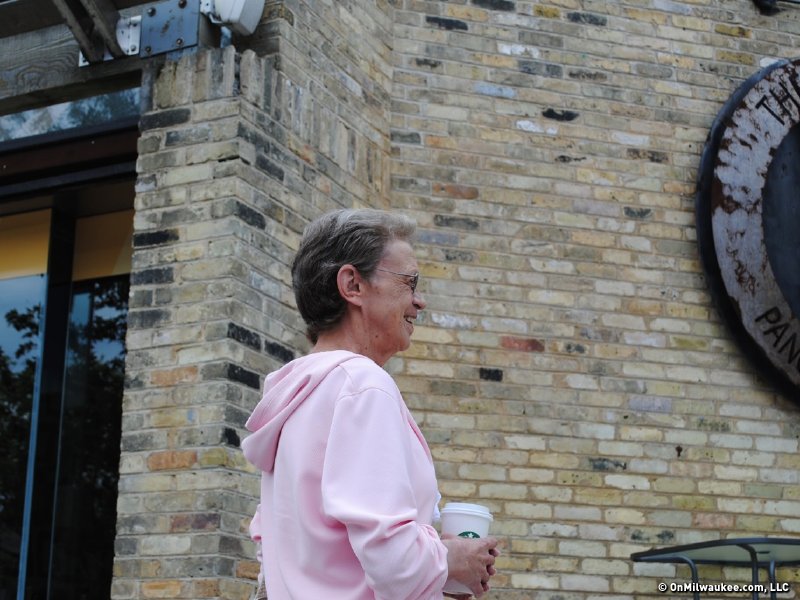For the sixth straight year, October is Dining Month on OnMilwaukee.com, presented by Concordia University. All month, we're stuffed with restaurant reviews, delectable features, chef profiles and unique articles on everything food, as well as the winners of our "Best of Dining 2012."
When Young Kim moved to Milwaukee from Seattle in 2003 to take the executive directorship of the Fondy Food Center, 2200 W. Fond du Lac Ave., he knew little about urban eating habits. Kim qualified for the position because of his experience running another non-profit, but it was a furniture bank for people moving from a shelter to their own home, not a food-related venture.
The mission of the Fondy Food Center is to connect Greater Milwaukee to local, fresh food by supporting small-scale Wisconsin farmers as well as by offering cooking-based nutrition education and providing a farmers' market on the North Side of Milwaukee.
Kim is the first to admit when he started the job, he was under the impression his role was to teach people living in the central city how to have a better diet. However, shortly after his arrival, while preparing food at the food pantry, he quickly realized he had a lot to learn from the people waiting in line for a meal.
"A woman told me, 'you're chopping your onions all wrong.' This was not the feedback I was expecting," says Kim.
Since then, Kim has continued to listen to and learn from the people he thought he was going to "save" from poor nutrition and, along the way, has recognized the challenges of central city eating, along with a lot of myths.
Although there aren't many stores that sell fresh, affordable produce in the central city, Nancy Ketchman, the director of development and communications for Fondy, tested the corner stores in the neighborhoods numerous times.
"I tried to see how much fresh produce I could buy with $10. Half of the stores I tried were closed, another 1/4 of the stores had no or extremely limited produce, and the remaining 1/4 had mediocre-to-poor quality produce at high prices. What right-minded person would buy an already molding cantaloupe for $2 just to 'eat healthy?'" says Ketchman.
However, Ketchman believes that access to food with low nutritional value is not just a central city problem.
"Have you been to the local Target? Or the Walmart in small-town America? Obesity is not a 'central city / poor person' problem. Many, many people eat unhealthy food these days, including wealthy suburban parents who feed their kids Pop-Tarts in the morning or frozen pizzas for dinner. We all eat like that occasionally, so it's really disingenuous for people to specify 'central-city' residents as the primary culprit," she says.
Through research, Kim learned that even though people often equate obesity with poor people, the middle class is statistically almost as challenged by it.
"About 35 percent of lower-income people are obese, but 31 percent of the middle class are, too," he says. "And for the category of 'overweight,' which is just under 'obesity,' the middle class actually had a higher percentage. Obesity is everyone's problem, not just 'those lazy people eating all the wrong foods.'"
Kim also recognizes there is a shortage of decent grocery stores in the central city – and that corner stores are often unable to get fruit and vegetable distribution in small enough amounts that are realistic for their sales – but he sees a lot of residents striving to find a decent selection of produce despite their limitations.
"Often, people who are low income eat just as many fruits and veggies as middle-income people. Lower-income people find ways to get their hands on healthy food," says Kim.
For instance, Kim knows of a group of four women, none of whom own a car, but car pool regularly to grocery stores outside of their neighborhood. The women get a paper, figure out which grocery store is offering the best deals, borrow a car from someone and then pile in for a grocery run.
"There are all sorts of cooperative efforts happening," says Kim, a Korean-American who grew up in New Orleans.
Kim says another big mistake is presenting a guilt-laden approach to food. He has learned through his job and his involvement in the community that food is about joy, connection and history and that telling people what they "should" and "should not" eat doesn't work. However, modifying recipes so they have less fat or calories is a teachable concept, and one that many people across demographics embrace. Adapting recipes for modern levels of physical exertion is becoming more common, too.
For example, many of the dishes common in a soul food spread were originally concocted when African-Americans worked in fields and burned more calories and needed sustenance. Today, lifestyles are less active for most Americans, not just African Americans, and so recipes for, say, collard greens might get modified.
"The traditional recipe is salty and fatty," says Kim. "Now, you might see people use smoked turkey necks and tails instead of ham hocks. They might use less salt. This is all happening organically, not because a food crusader came in, waving a stalk of broccoli, saying 'you need to eat better!'"
Although some "food crusaders" mean well, they approach urban eating habits from a privileged perspective. For example, recently a group of college students in Santa Cruz, Calif. started a mission to teach gardening to kids in a Latino neighborhood. However, their parents, who were trying to escape the migrant workers' lifestyle, were outraged and did not want their kids to learn gardening or farming out of fear they would default to the jobs they were working so hard to avoid.
"You have to be really careful when you try to 'help' people," says Kim. "You have to first ask people what they want. There's this savior mentality out there, but I'm not about that anymore."
The word "food desert" is a term sometimes used compassionately by people who are empathizing with the lack of large grocery stores, farmers markets and / or healthy restaurants in the central city, but this is a term some people living and / or working in the central city do not appreciate.
"I hate that word," says Kim. "It implies nothing is happening, that we need to start from scratch with seed and an irrigation system. But no, the pieces are already in place."
Kim says the food situation in parts of the central city are more like a farm after a farmer dies. The weeds grow over it, but if you go in and remove the weeds, there's a lot of fertile ground underneath.
"I am less of a maker of change than a facilitator of it," says Kim.
Part of the Fondy Food Center's mission is to inspire more conversations among neighbors and friends about food, from family recipes to the merits of raw food eating. Kim says he knows of six people in the central city who own a juicer and juice regularly. In general, people need to share more information so they make healthier choices for themselves, not because someone on television who is not a part of their community tells them.
Denise Robinson lives on Milwaukee's North Side, and shops at the Fondy market regularly. She often invites neighbors to come with her who do not have a car or will take orders and bring the produce back to them.
"I used to drive to Outpost on Capitol, and I do in the winter, but when the farmers market is open, I go there. You gotta be flexible because they got what they got, but it's always good," says Robinson.
Kim also believes that local food solutions need to be decided based on what will work for Milwaukee, not what worked in Detroit or Chicago.
"Just because something worked in another city doesn't mean it will work here," he says. "Every place has its own history and the answers come from it."
Molly Snyder started writing and publishing her work at the age 10, when her community newspaper printed her poem, "The Unicorn.” Since then, she's expanded beyond the subject of mythical creatures and written in many different mediums but, nearest and dearest to her heart, thousands of articles for OnMilwaukee.
Molly is a regular contributor to FOX6 News and numerous radio stations as well as the co-host of "Dandelions: A Podcast For Women.” She's received five Milwaukee Press Club Awards, served as the Pfister Narrator and is the Wisconsin State Fair’s Celebrity Cream Puff Eating Champion of 2019.







